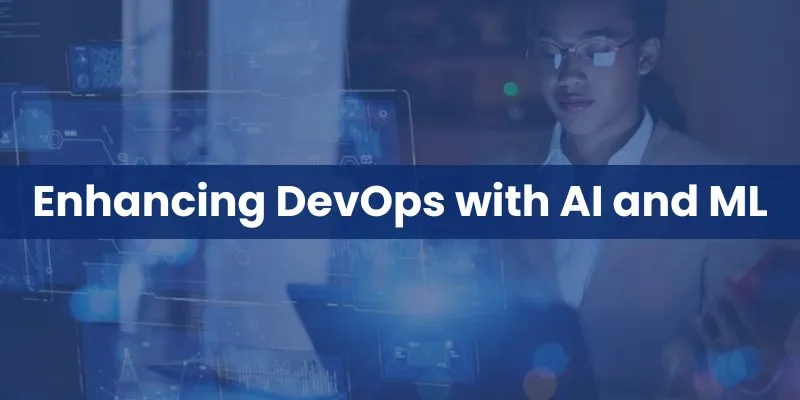
In the ever-evolving landscape of software development, DevOps has emerged as a crucial methodology for enhancing collaboration between development and operations teams. By fostering a culture of continuous integration and continuous delivery (CI/CD), DevOps aims to streamline the software development lifecycle, reduce deployment times, and improve overall product quality. However, as the complexity and scale of software systems grow, traditional DevOps practices may struggle to keep pace. This is where Artificial Intelligence (AI) and Machine Learning (ML) come into play, offering innovative solutions to enhance and optimize DevOps processes. Are you looking to advance your career in Devops? Get started today with the DevOps Training in Chennai from FITA Academy!
Predictive Analytics for Proactive Issue Resolution
One of the most significant contributions of AI and ML to DevOps is predictive analytics. By analyzing historical data and identifying patterns, ML algorithms can predict potential issues before they occur. For instance, an AI-powered system can analyze past incidents and detect anomalies that might indicate an impending system failure or performance bottleneck. This proactive approach allows DevOps teams to address issues before they escalate, minimizing downtime and improving system reliability.
Automating Routine Tasks
AI and ML can significantly reduce the manual effort involved in DevOps processes by automating routine tasks. This includes tasks like code reviews, testing, and deployment. For example, AI-driven tools can automatically review code for potential bugs or vulnerabilities, ensuring higher code quality and security. Similarly, ML algorithms can automate the testing process by identifying the most relevant test cases based on code changes, thereby optimizing test coverage and reducing the time spent on testing.
Enhancing CI/CD Pipelines
Continuous Integration and Continuous Deployment (CI/CD) pipelines are at the heart of DevOps practices. AI and ML can enhance these pipelines by optimizing various stages of the process. For instance, ML models can predict the impact of a new code commit on the overall system, allowing for more efficient resource allocation and reducing the risk of deployment failures. AI can also help in automating the rollback process by quickly identifying the root cause of an issue and reverting to a stable state.
Intelligent Monitoring and Alerting
Traditional monitoring systems generate a plethora of alerts, many of which are false positives or irrelevant, leading to alert fatigue among DevOps teams. AI and ML can transform monitoring by providing intelligent alerting mechanisms. By learning from historical data, AI systems can distinguish between normal and abnormal behavior, significantly reducing false positives. Moreover, AI-driven monitoring tools can prioritize alerts based on their potential impact, ensuring that critical issues are addressed promptly. Learn all the Devops techniques and become a devops developer. Enroll in our Devops Online Course.
Improving Incident Management
Incident management is a critical aspect of DevOps, where rapid identification and resolution of issues are paramount. AI and ML can enhance incident management by automating the detection and classification of incidents. For example, natural language processing (NLP) algorithms can analyze log files and categorize incidents based on their severity and nature. Additionally, AI can assist in root cause analysis by correlating various data points and identifying the underlying cause of an incident, enabling faster resolution.
Enhancing Collaboration and Knowledge Sharing
AI and ML can also foster better collaboration and knowledge sharing among DevOps teams. AI-powered chatbots, for instance, can provide instant support by answering common queries and guiding team members through complex processes. Furthermore, ML algorithms can analyze communication patterns and project documentation to identify knowledge gaps and recommend relevant training materials or documentation, ensuring that team members are well-equipped to handle their tasks.
The integration of AI and ML into DevOps processes holds immense potential for transforming the way software development and operations are conducted. By leveraging predictive analytics, automating routine tasks, enhancing CI/CD pipelines, providing intelligent monitoring, improving incident management, and fostering collaboration, AI and ML can address many of the challenges faced by traditional DevOps practices. As AI and ML technologies continue to advance, their role in enhancing DevOps processes will only become more significant, driving greater efficiency, reliability, and innovation in software development. Embracing these technologies can empower organizations to stay competitive in an increasingly complex and dynamic digital landscape. Looking for a career as a devops developer? Enroll in this Advanced Training Institute in Chennai and learn from experts about devops testing techniques and tools.
Read more: DevOps Interview Questions and Answers
